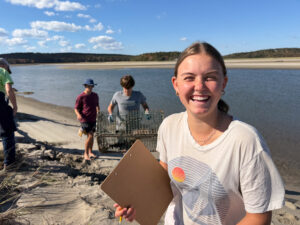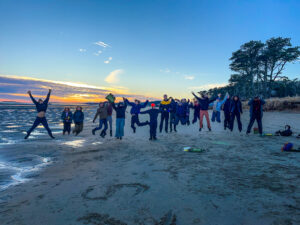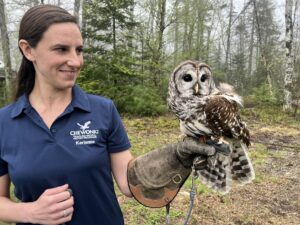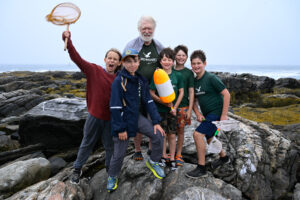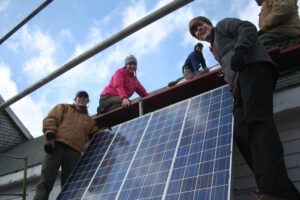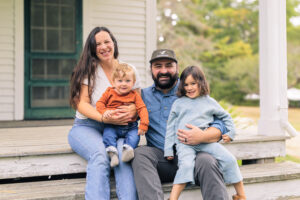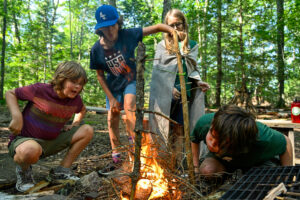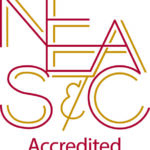At Chewonki, we have the privilege of meeting a diverse array of people. Each year, we welcome a few thousand students, campers, staff, and volunteers to our campus on Chewonki Neck, located on the traditional homeland of the Wabanaki Nations. Even the name of this place, “Chewonki” is believed to be derived from the Abenaki words “Che” (big) and “Adowakeag” (a horse-back or ridge of glacial stone), defining the ridge running down the peninsula that today’s campers might call “Blueberry Hill.” Through our outreach programs, we connect with even more individuals—nearly 18,000 students and families at schools and libraries across the state of Maine. Our backcountry trip programs in Maine and Canada also routinely travel through the traditional homelands of several sovereign Indigenous tribes, including the Houlton Band of Maliseet Indians, the Mi’kmaq Nation, the Penobscot Nation, and the Passamaquoddy Tribe.
Our commitment to place-based education and environmental justice naturally fosters conversations among our participants and staff about local history, Indigenous peoples and their traditions, land-use ethics, and what it means to co-occupy sovereign Tribal spaces entangled in a long, complex, and often painful history of colonization and industrialization. Today is a special day to pause, reflect, and remember: Indigenous Peoples’ Day.
For those who have visited Chewonki but are not U.S. citizens or members of the Wabanaki Nations, Maine is one of seventeen U.S. states that have chosen to replace Columbus Day with Indigenous Peoples’ Day. This change recognizes the thousands of years of Indigenous history and culture that have shaped this region and reflects a desire to honor the original peoples of these lands and waters.
Signed into law by Governor Janet Mills in 2019, this change is part of a larger series of efforts to improve the relationship between the State of Maine and the sovereign tribes located in this region, collectively known as the Wabanaki Confederacy.
In a recent column in the Bangor Daily News, Penobscot Nation Tribal Ambassador Maulian Bryant wrote:
“Something I didn’t realize when we were making this policy and speaking to the need for this change to Indigenous Peoples’ Day was the effect on tribal citizens. Over these five years, I have heard from many Wabanaki thankful for this change and excited to celebrate this day instead of feeling conflicted or hurt by it.
“Our people have endured so much, and it is a blessing to have been able to bring about a reason to be joyful and proud in our continued presence and rich history and contributions. When I was growing up, there was pain and confusion around why anyone would celebrate Columbus. Now my children are 2, 15, and 17, and in their homelands now called Maine, they get to embrace this day each year and feel the strength and wisdom of our ancestors who smile as we make progress one issue at a time and honor their sacrifices.”
Bryant is set to become the next Executive Director of the Wabanaki Alliance.
As a youth-serving organization, Chewonki is acutely aware of the hopes and dreams of all parents for a world in which their children are safe, loved, and can build sustainable and thriving futures.
While there are still many areas of disagreement between the State of Maine and the Wabanaki Nations over tribal rights and federal recognition, we appreciate initiatives like formally recognizing Indigenous Peoples’ Day. We thank and honor the Houlton Band of Maliseet Indians, the Mi’kmaq Nation, the Penobscot Nation, and the Passamaquoddy Tribe, and the many members of those tribes who work to educate, partner, and improve the lives of everyone who lives and works in this region.
Read More:
